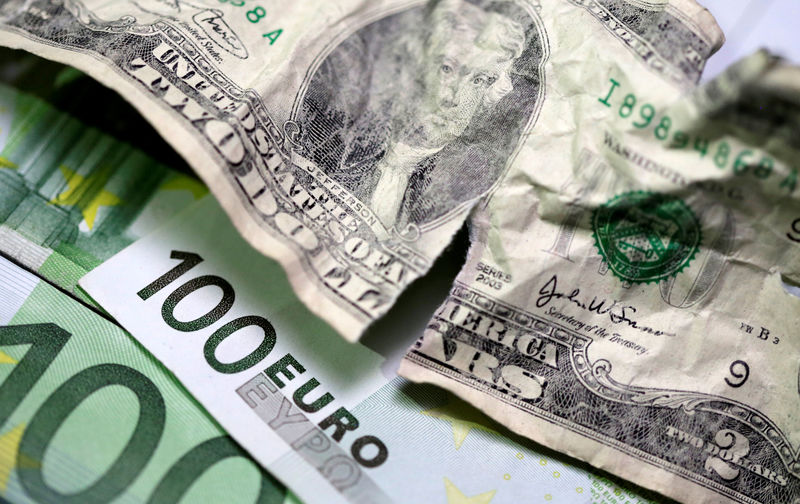By Peter Nurse
Investing.com - The U.S. dollar tracked higher while the euro slumped to a fresh low as soaring crude prices raised fears that the war in Ukraine will result in a stagflationary shock, particularly to countries in Europe.
At 3:20 AM ET (0820 GMT), the Dollar Index, which tracks the greenback against a basket of six other currencies, traded 0.3% higher at 98.957, just off last week’s 22-month top of 99.220 on the back of strong employment data.
EUR/USD fell 0.5% to 1.0871, after earlier falling to its lowest level since May, and seemingly heading towards its 2020 trough of 1.0636.
Fight in Ukraine continues to intensify, with Russian troops closing in on Mykolaiv, a city of half a million people near Odessa.
This has resulted in the United States and Europe looking at bans on Russian crude imports in order to punish the Putin regime, prompting oil prices to leap to highs not seen since 2008.
“The repercussions for energy prices are most severe in Europe due to its energy dependency on imports,” said analysts at Nordea, in a note. “European households spend a higher proportion of their income on heating/gas/electricity compared to American households. Hence, the economic ramifications will be more pronounced for the European economies than in the U.S.”
This puts the spotlight on the European Central Bank, which meets on Thursday, as the policymakers will face a complicated picture of rising prices but also a severe threat to future growth.
“The ECB has very hard decisions to make, but to keep its options open, it will likely decide in favor of a faster taper of its net asset purchases,” Nordea added. “The wish to normalize policy is strong within the Governing Council.”
It was not only against the dollar that the euro weakens, the single currency also briefly sank below parity versus the safe-haven Swiss franc for the first time in seven years.
This prompted the Swiss National Bank to state that it was prepared to intervene in the foreign exchange market if necessary, the sort of language the Swiss central bank uses when it feels that its currency has strengthened too much, to the detriment of its exports.
Elsewhere, USD/JPY traded 0.2% higher at 115.03, GBP/USD fell 0.1% to 1.3208, just above a two-month low, while AUD/USD soared 0.7% to 0.7419, helped by the soaring commodity prices.
USD/CNY traded flat at 6.3179, despite China announcing an economic growth target of around 5.5% this year, sharply lower than last year's 8.1% GDP growth.
USD/RUB rose 12.5% to 135.4900, with the ruble falling to a fresh record low in thin offshore trade with local markets closed for trading.
The ruble has lost more than 40% of its value against the dollar on the back of Russia’s invasion of Ukraine and the associated Western sanctions.
